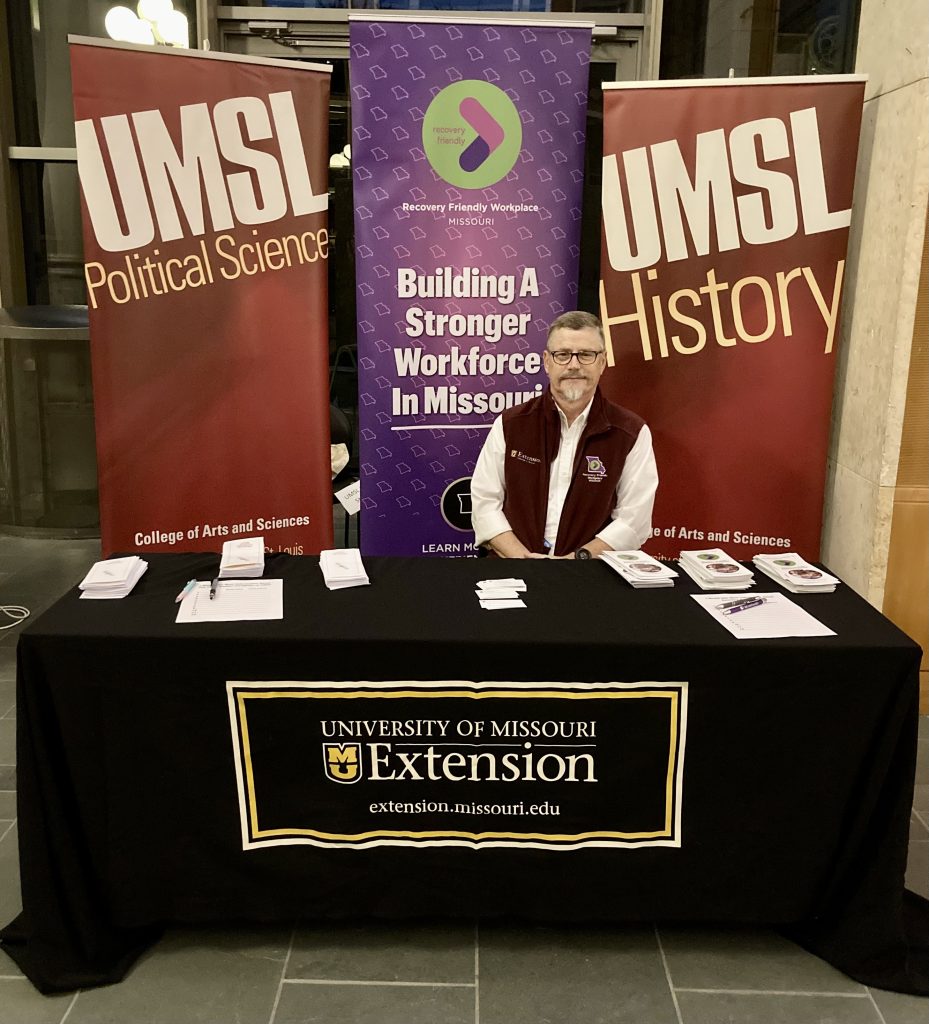
Changing culture does not come easily. That is what the Recovery Friendly Workplace initiative in Missouri is trying to do. Changing cultures most often requires meeting people where they are in that moment. An important ingredient to making change is relationships. The contacts, the conversations, the opportunity to have a transformational conversation that can change practices and cultures most often happen because of relationships. Simply put, if you can’t get in the door, in the right room with the decision makers, in the conversations that can led to change, change is not going to happen.
When Dr. Douglas Swanson was invited to host an information table at the Missouri History Society Thursday Nights at the Museum event November 16, 2023, he jumped at the opportunity. That night, November 16th, the Missouri History Museum was featuring the premier of the Bread and Roses plan ‘1877’ by Colin McLaughin, a look at the 1877 strike that swept St. Louis. Doug is the program coordinator for the Labor Studies Certificate and a teaching faculty member at the University of Missouri St. Louis (UMSL) College of Arts and Sciences where he is a member of both the Political Science and History Departments.
While the play was perfectly positioned in the subjects of his interests— labor, work, politics, and history—this also provided him the opportunity to talk about something more current, opioids and substance use disorders (SUD) impact on the workforce, and why being a Recovery Friendly Workplace is so important. “When you have opportunities to frame the issue for different audiences, you find that the amount of overlap and shared impact being Recovery Friendly has, not just on people, on communities and businesses”, said Swanson “you need to search out those opportunities for conversations. That is how we are going to change the culture around SUD.”

